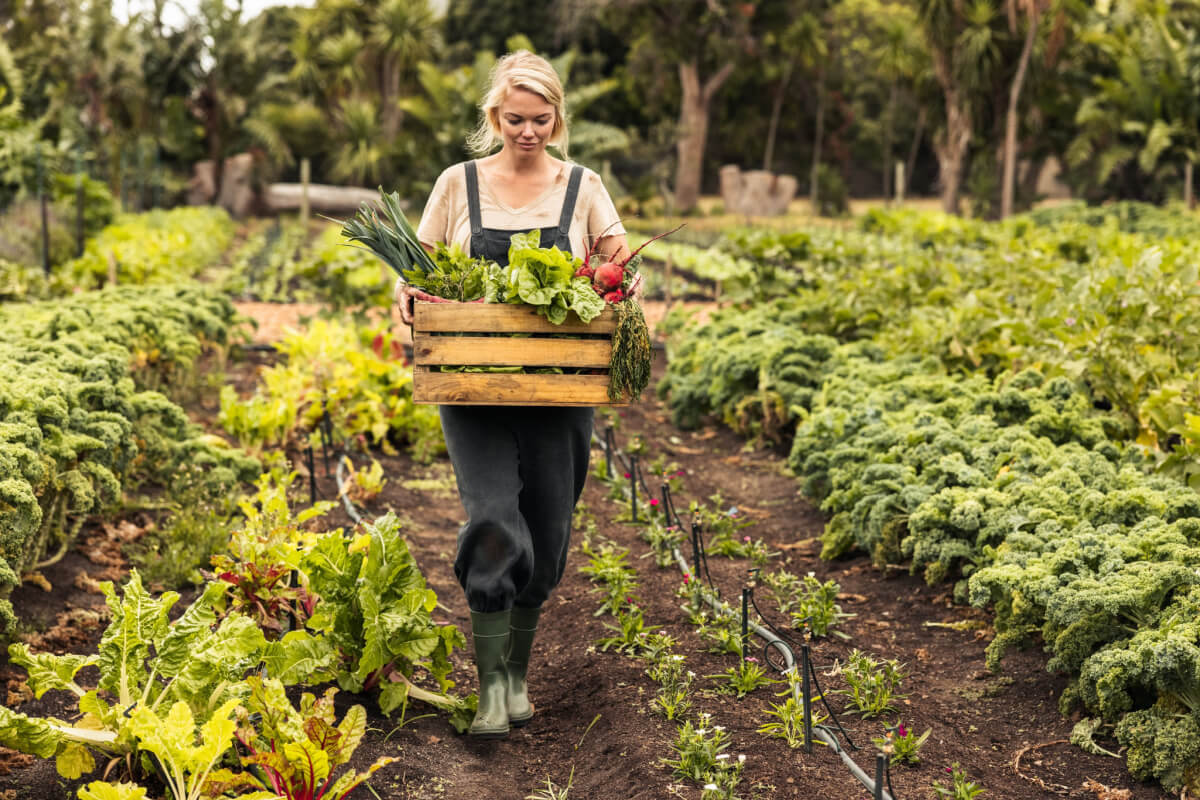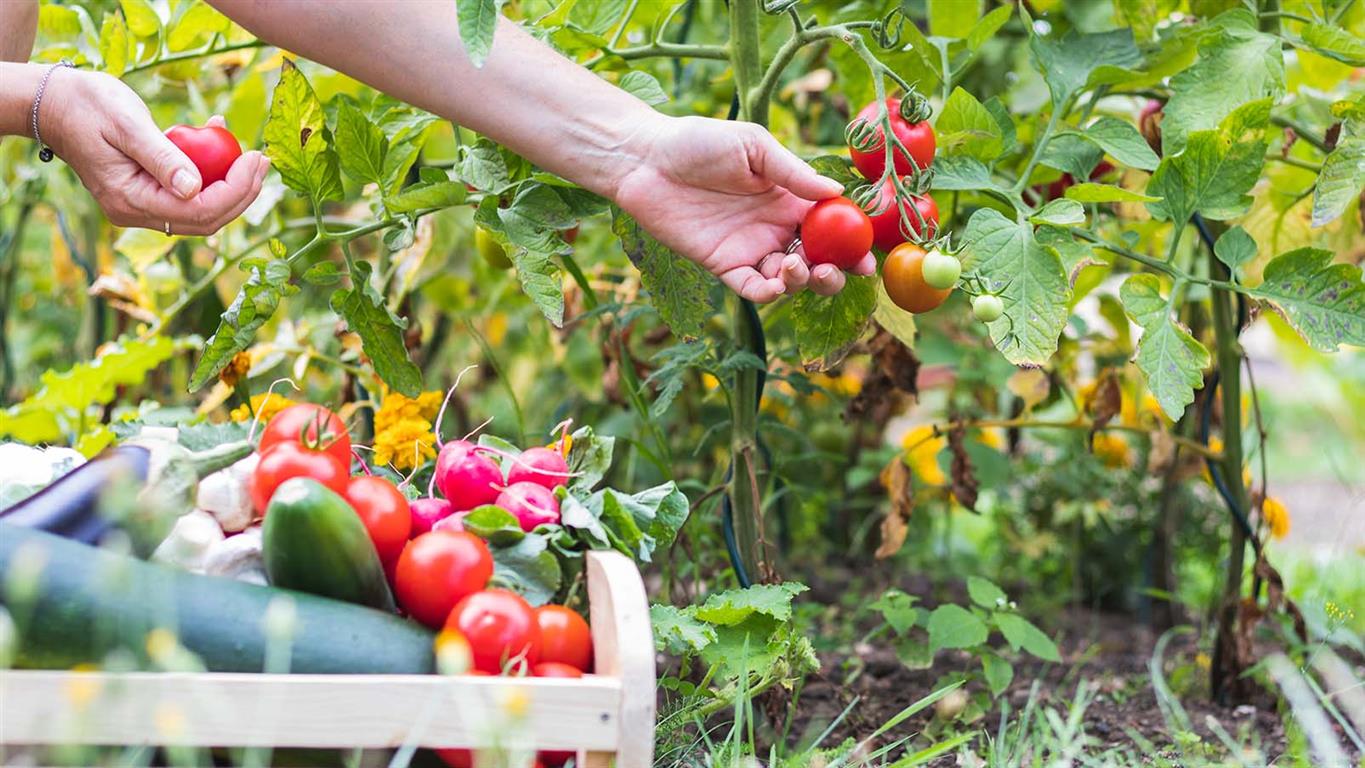Gardening is a delightful and rewarding hobby that not only beautifies your surroundings but also allows you to connect with nature on a deeper level. Imagine stepping into your backyard or balcony and plucking fresh, organic vegetables and aromatic herbs for your meals. The joy of growing your own vegetables and herbs is unparalleled, offering a sense of accomplishment and a direct connection to the earth. In this article, we’ll explore the various reasons why gardening can be a source of immense joy and how you can start your own vegetable and herb garden.
Health and Nutrition: Cultivating Fresh and Nutritious Produce

Growing your own vegetables and herbs provides you with access to fresh, organic produce right at your doorstep. Here are some examples of nutritious and delicious crops you can cultivate:
- Tomatoes: Bursting with vitamins A and C, as well as antioxidants, homegrown tomatoes are a staple in many gardens. They’re perfect for salads, sauces, and sandwiches, adding a burst of flavor and nutrition to your meals.
- Spinach: This leafy green is rich in iron, calcium, and a variety of vitamins. Freshly harvested spinach from your garden can be used in salads, smoothies, or sautéed as a nutritious side dish.
- Basil: An aromatic herb, basil not only adds a delightful flavor to dishes but also offers anti-inflammatory and antibacterial properties. Use it in pasta, salads, or to make a fragrant pesto.
- Bell Peppers: These colorful vegetables are packed with vitamins and antioxidants. Homegrown bell peppers can be used in stir-fries, salads, or stuffed for a delicious and healthy meal.
- Mint: Mint is not only refreshing but also aids digestion. Grow it in your garden and use it to make teas, garnish desserts, or add flavor to beverages.
Environmental Benefits: Reducing Your Carbon Footprint

Gardening contributes to a healthier planet by reducing the need for transportation and packaging associated with store-bought produce. Here are a few ways your garden helps the environment:
- Reduced Food Miles: By growing your own vegetables and herbs, you’re reducing the distance your food travels, minimizing greenhouse gas emissions and reducing your carbon footprint.
- Composting: Utilize kitchen and garden waste to create nutrient-rich compost. This sustainable practice enriches the soil, reducing the need for synthetic fertilizers that can harm the environment.
- Conservation of Water: With efficient watering techniques and rainwater harvesting, you can save significant amounts of water compared to commercial farming practices.
- Preserving Biodiversity: Home gardens often feature a variety of plants, promoting biodiversity and providing habitats for beneficial insects and birds.
- Soil Health: Gardening encourages responsible soil management, preventing erosion and ensuring the soil remains fertile for future generations.
Stress Relief and Mental Well-being: A Therapeutic Escape

Gardening offers a therapeutic escape from the hustle and bustle of daily life. Here’s how it can enhance your mental well-being:
- Nature Therapy: Spending time in a garden surrounded by greenery and fresh air is proven to reduce stress, anxiety, and depression. It provides a sense of calm and tranquility.
- Physical Exercise: Gardening is a great form of low-impact exercise, promoting physical health and improving your mood through the release of endorphins.
- Achievement and Fulfillment: Watching your plants grow and thrive is immensely rewarding, boosting your self-esteem and sense of accomplishment.
- Connection with Nature: Gardening allows you to connect with the natural world, fostering an appreciation for the cycle of life and the importance of sustainability.
- Creative Outlet: Planning and designing your garden, choosing which plants to grow, and experimenting with layouts can ignite your creativity and provide a fulfilling hobby.
Community and Sharing: Building Bonds through Gardening

Gardening can be a social activity that brings communities together. Here’s how gardening can foster a sense of community and sharing:
- Community Gardens: Join or start a community garden, where individuals come together to cultivate a shared space. This encourages teamwork, fosters friendships, and shares the harvest among participants.
- Sharing Surplus Produce: Gardening often yields more produce than one family can consume. Sharing your surplus vegetables and herbs with friends, neighbors, or local food banks can strengthen community bonds.
- Garden Workshops and Events: Organize or participate in gardening workshops, events, or classes within your community. These events offer learning opportunities and a chance to connect with fellow gardening enthusiasts.
- Educating Others: Share your gardening knowledge and experiences with others, especially beginners. Inspiring others to start their own gardens can create a ripple effect of joy and sustainability within the community.
- Harvest Exchanges: Coordinate regular exchanges where gardeners can swap their surplus produce. This not only ensures variety in your meals but also fosters camaraderie among gardeners.
Conclusion

Gardening is a source of endless joy, offering a plethora of benefits to your health, the environment, your mental well-being, and your community. Whether you have a spacious backyard or a cozy balcony, you can experience the joy of growing your own vegetables and herbs. Start small, learn from your experiences, and watch your garden flourish. Embrace the therapeutic nature of gardening and enjoy the fruits of your labor—literally and figuratively. Happy gardening!

